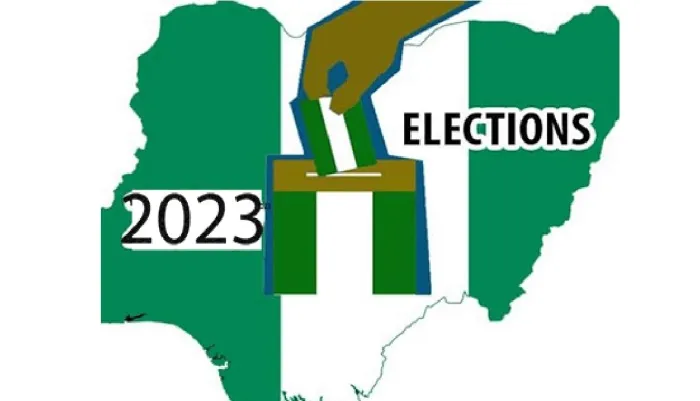2023: Candidates must present, defend ideas
In an age when Nigeria is plagued by several nation-ending threats like insecurity, rising inflation and a tottering economy, we have noticed with dismay that conversations around the major presidential candidates for next year’s general elections have revolved around tribe and religion rather than issues. The emphasis on regional and religious politics has proven to […]

In an age when Nigeria is plagued by several nation-ending threats like insecurity, rising inflation and a tottering economy, we have noticed with dismay that conversations around the major presidential candidates for next year’s general elections have revolved around tribe and religion rather than issues.
The emphasis on regional and religious politics has proven to be the bane of our political evolution and has continued to point to the dreadful political culture Nigerians have been exposed to since the early 1950s.
- Our economy is in emergency room, are there doctors on call?
- Insecurity: Gombe gov’t launches ‘Operation Hattara’ task-force
The responsibility for these current distractions in the run-up to the 2023 elections will have to be placed squarely on the shoulders of the candidates and their campaign teams. They have mostly not focused the conversations around national issues, their manifestoes and how they hope to halt and amend the damage Nigeria has suffered in the last few years.
Only a few candidates have so far documented an agenda for the nation. The others have promised to present such documents but months after being elected candidates and entrusted with their parties’ flags, these documents have still not materialised.
In other democracies, it is quite common for discussions about manifestoes and ideas and ways forward to determine the outcome of primary elections.
The new INEC timetable for the 2023 elections should give candidates and electorate adequate time to examine and question the manifestoes presented by the candidates; have conversations about them and ask critical questions, unlike in the past when such documents were produced for formality in the run-up to elections. So far, this change in the timetable has not translated into reasonable engagement with issues on both the part of the candidates and electorate.
This lack of focus on issues has created a condemnable state of affairs in which elections at the party primaries were decided not on what ideas or programmes candidates have for Nigeria, but on how much dollars they have for party delegates.
This failure to articulate ideas has translated into media interviews where the blatant refusal of some candidates to address questions about insecurity has been noticed. Such candidates or their representatives have preferred instead to treat the issue as if it is a mystery that should not be discussed publicly with Nigerians. And this is where the media requires a change in tactics. The media must move from all the distractions about religion and ethnicity and set the agenda for the candidates. The days of trusting candidates blindly should be well and truly behind us as in the past, such blind trust has only resulted in disappointments.
Nigerians are desperate to know what exactly each candidate is bringing to the table. The absence of such conversations creates room for petty ethnic and religious vitriols that serve the country in no way.
We are deeply concerned by this lack of focus on issues and ideas and the hiring of mercenaries to propagate a politics of hate and veiled attempts at creating a personality cult around the candidates.
We have seen this approach to these issues most recently in the 2015 elections. We have all seen the outcome. We expect candidates to bring transparency and accountability around the issues of national interest.
We recognise that it is quite possible that when candidates are elected, sworn in and have access to official records, they might realise that certain ideas they have about national issues would have to be tinkered with or modified. That will only be possible if candidates have any kind of ideas, to begin with. Candidates must not take Nigerians for a ride, get into office and allow themselves to be confounded by the enormity of the challenges they face. Whoever is elected needs to hit the ground running, and not spend the time we don’t have going over records before attempting to formulate an approach to issues.
By this time, we expect each candidate to have a research team comprising of all sorts of experts with insights on national issues and the running of the state. These experts will help candidates research to the nearest degree of accuracy the true state of affairs and help them devise strategies to addressing the challenges.
To attempt to bamboozle Nigerians into voting for certain candidates based on smokescreen and sleight of hands politics is the height of disservice to the people the candidates aspire to lead.
We, therefore, find it expedient for these candidates to articulate as clearly as possible what issues will preoccupy their administration, and how they will address them and therefore move the conversation away from the toxicity of ethnicity and religion.
We implore Nigerians to learn from the mistakes of especially the recent past, and treat governance with all the transparency necessary, especially since governance is not to be conducted like a personality cult of mysteries.
We demand that candidates present their plans for addressing pressing national issues like insecurity, unemployment, persistent energy crises, the chaos and lack in the health sector, including rising maternal and child mortality, and the naira’s continuous freefall against the dollar.
The sooner candidates and Nigerians engage with these issues, the better for the polity.
